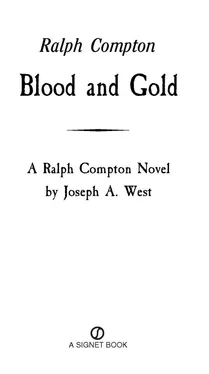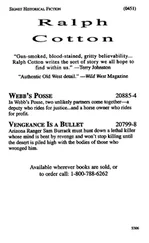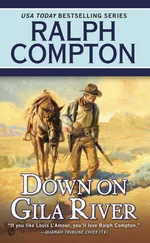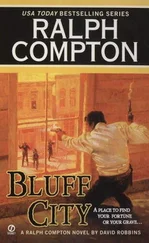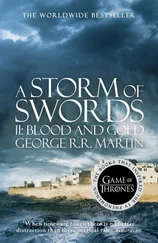A cheer went up from the hands, but the Kiowa sat in brooding silence, absorbed by his own thoughts, his eyes open but seeing nothing, looking inward.
I figured the man was having a vision of some kind, but I could not guess if it was good or bad, and had I asked, the Kiowa would not have told me.
It was not yet full daylight when we saddled up and took to the trail, heading due west to keep Fort Davis to our south.
A day’s ride took us to the shallow foothills of the Davis peaks, but we saw no sign of Apaches.
The Kiowa rode far ahead of us, scouting the brush-covered hills and shadowed canyons, the rugged, stone pillared mountains a purple silhouette against the pale sky, rising a mile high above the plain.
The Coleman hands were strung out along the trail, men and horses beginning to wear out. There was no talk from the men as they rode and I began to wonder if they’d stick if we didn’t come on the Apaches soon.
I reckoned John Coleman had the same thought, because he suddenly turned in the saddle and beckoned to me. I kneed my horse beside the big rancher and was shocked by his appearance. Under his beard, his cheeks were sunken and his skin had taken on an unhealthy gray pallor. Only the eyes were alive, burning with an unholy light, the eyes of a fanatic—or a madman.
“Dusty, listen to me,” the rancher said. “There’s still a couple of hours until dark and I want this over and done. I want the Apaches who killed my Sally scalped and dead.”
“We’ll find them, Mr. Coleman,” I said, attempting to humor the man. “They can’t be too far ahead of us.”
As though he hadn’t heard, Coleman went on: “Back at the Rafter C, my Sally lies in the icehouse, wrapped in a sheet, all stiff and white and cold. I can hear her every minute of the day and night, crying out for me to come home and bury her decent.” The man’s blazing eyes sought mine. “She’ll wear a dress that was her mother’s. I’ll lay her in the ground in it.”
The big rancher was teetering along the ragged edge of insanity, though I could sense his inward struggle as he desperately tried not to slip away.
“Go help the Kiowa, Dusty,” he said, slapping me on the shoulder. “Find me those Apaches.”
I was only too glad to escape those terrible eyes, and I spurred the galloping dun hard as I rode toward the distant figure of the Kiowa.
I caught up with the Indian as he was riding through a narrow canyon, its floor covered in yucca and aga rito. On the top of the surrounding hills grew yellow pine and a few black cherry trees. Higher up, the mountain slopes were covered in juniper and pinon and here and there stood stands of slender and stately ponderosa pine, their dark green branches moving restlessly in the wind.
The Kiowa didn’t seem surprised to see me. He merely pointed with his bladed hand along the canyon. “They came this way.” He nodded toward the soaring mountains. “They intend to cross the peaks and head for Wild Horse Draw.”
I looked around me, but saw nothing. “Where are they?” I asked.
The Kiowa gave me a rare, grudging smile and nodded. “Up there.”
I looked up, squinting against the harsh sunlight, at the mountain towering above us. It was a steep climb to the crest where granite rocks jutted from the slope like the prows of great iron warships.
As my eyes became accustomed to the glare, I made out a single file of about twenty horsemen winding their way toward the top, an Apache on a gray horse leading them, the rest strung out behind him.
“Hell, they’re getting away,” I said.
The Kiowa shook his head. “No, because now we stop them.”
He slid his Henry from the boot, threw it to his shoulder and levered off three fast shots, the booming echoes bounding among the canyon walls like gigantic boulders being bowled along a stone cavern.
Immediately, the Apaches scattered, men and horses merging so completely into the landscape of the mountain that the slope seemed deserted.
Coleman and his riders charged into the canyon a few moments later.
“Damn it all, did we lose them?” the rancher yelled, glaring at the Kiowa, his frustration evident. “Did we lose them?”
The Indian answered without taking his eyes from the slope. “No, they are up there.”
“Will they fight?” Coleman demanded. His gaze turned to me. “Dusty, will they fight?”
“They will fight,” the Kiowa replied for me. “They will fight up there, higher up the mountain. The Apache will let us come to them, even though we are few and they are many.”
“Hell,” the big rancher snorted, “there are thirteen of us.”
The Kiowa smiled again, a humorless grimace that didn’t reach his eyes. “With Apaches, that may not be enough.”
“If you’re too yellow to face them, then stay here, damn you!” Coleman flared. “The rest of us will get the job done.”
If the Kiowa took offense, he didn’t let it show. He turned to Coleman and carefully unbuttoned his shirt, revealing a rawhide string; hanging from it were what looked to me to be a row of withered brown claws. “These are the trigger fingers of the seventeen men I have killed in battle,” he told Coleman, his hard-boned face stiff and proud. “I will fight the Apaches.”
Coleman looked at the Indian’s grisly trophies for long moments, then nodded. “So be it.”
He turned in the saddle, addressing his men. “My offer still stands, boys. Fifty dollars in gold for every filthy Apache scalp you lay at my feet.” Amid wild cheering, Coleman doffed his hat and waved it above his head. “Now let’s go get it done.”
Led by the Kiowa, we rode further into the silent canyon.
I slid my Winchester from the scabbard and from far above me I heard a scrub jay call, answered a few moments later by another. And another.
The Kiowa’s back stiffened, his eyes constantly scanning the ridges of the canyon. He laid the butt of the Henry on his right thigh, holding the rifle upright and ready as his pony picked its way along the canyon floor.
He had been right. The Apaches weren’t about to run. They planned to stay and fight.
Chapter 25
After a couple hundred yards, the canyon widened, giving way to a wide clearing carpeted with grass and wildflowers, a few scrub oak growing around the perimeter. There was evidence that wild cattle had used this place to graze and they’d cut a narrow trail that wound up the slope of the mountain, disappearing into some tumbled boulders a few hundred feet above the level.
We were enclosed on all sides by high, brush-topped ridges, and it was very hot in the clearing. I stood my horse near the shade of an oak and wiped sweat from my hatband and brow.
The Kiowa had swung out of the saddle and was examining the trail up the mountain. He studied the piled-up boulders above us for long moments, nodded to himself, then walked over to Coleman, leading his pony.
“Where are they?” the rancher asked, irritation harsh in his voice. “Damn it, man, where are they?”
The Kiowa pointed beyond the boulders. “Higher.”
“Can we get the horses up there?”
“Yes,” the Kiowa answered, “but best we go on foot. Men on horseback make large targets.”
Coleman didn’t argue. He ordered his hands to dismount and leave their horses in the clearing. I swung out of the saddle, eased the girth on the dun, then walked to the bottom of the trail, studying the boulders above me. It seemed a likely ambush spot, but I figured the Kiowa knew what he was doing, and when he took to the slope I stepped after him, Coleman and his men falling in behind us.
Halfway to the boulders, a rabbit bounded out from under my feet and I jumped about three feet in the air in surprise. Behind me I heard a man snigger and even Coleman smiled and said: “Bunny spooked you some, Dusty, huh?”
Читать дальше
